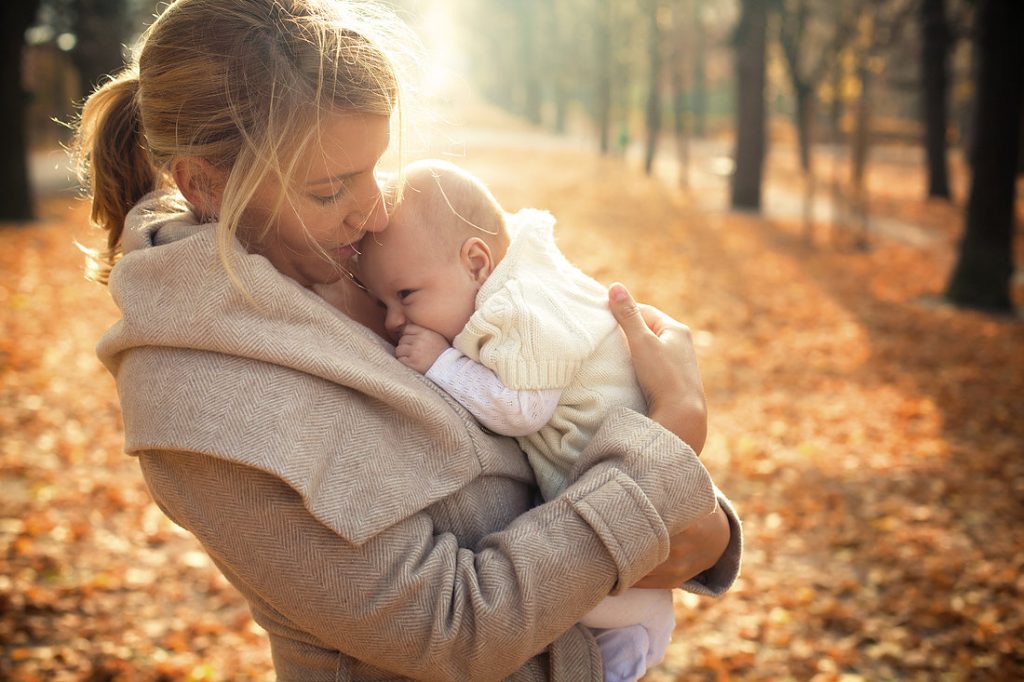“Mums just seem to be so worried nowadays.” This was said to me last week by a health visitor with nearly 30 years experience working with mothers and their children. It got me thinking. Are mums more worried now than in the past? And if so, why? Is the world really more dangerous and scary, or are we all putting unreasonable expectations on ourselves and others?
As a mum of seven myself, I certainly recognise that sick feeling of mingled guilt and fear. It doesn’t take much to set it off. Some funny looking spots on her tummy. Is that a new lump on his head? Should he be waking to feed this often? Are you sure she isn’t too hot, or too cold? Do I have enough milk? Shouldn’t she be talking/walking/writing poetry by now? There is no shortage of possible topics for concern.
Is it natural to worry?
I guess to some extent us mums are programmed by nature to worry about our little ones. Or even our bigger ones. I remember when my eldest daughter (now almost 30!) was a tiny newborn, being told by an older friend, “Ah, just you wait until your children are in their thirties. That’s when you really start to worry about them”. I’m still hoping that isn’t true! Yes of course it’s our job to protect our children from harm and care for them when they’re sick. I just wonder whether our anxieties can sometimes get out of control. That’s when they might start to do more harm than good.
Anxiety is not only a horrible, shaky, sick-making experience for mums. There’s good evidence that babies are negatively affected by overstressed mothers, even from before birth. A mother’s stress hormones can directly affect her baby’s developing brain, and an over-anxious mum may have difficulty helping her child build social and emotional confidence. If we tend to see threats and problems everywhere we look, that’s what our children will see too. But that can just feel like something else to worry about – yet another load of guilt for exhausted mums to shoulder!
Great expectations …
Everyone has such huge expectations of motherhood. First it’s the perfect home waterbirth where you just “breathe baby out” surrounded by soft music and candlelight. Then of course you will breastfeed instantly and easily, and your infant will sleep like a little cherub in her charming crib. She will exceed every milestone, making you the envy of your friends. Your home will be spotless and your social life busy and interesting. You will quickly reestablish a fabulous sex life and your makeup will always be flawless.
And reality …
Of course it is rarely like this. How could it be? Birth frequently fails to go according to plan, and babies all have their own messy digestive systems and ways of adjusting to this complicated world. And becoming a mum is complicated too. Even having read all the right books and websites and with the very best support networks, working out a whole new role in life isn’t easy. Mothers can quickly feel that they must be doing something wrong. When actually they are just working flat out to do their very, very best for this amazing and sometimes baffling little person.
Too much advice?
I think part of the problem is that parents today are totally bombarded with well meant advice – rather like a megaton of cluster bombs. When my daughter with Down Syndrome arrived it was a super megaton!! At first I was really grateful. Here I was with this initially rather strange, worrying and sick (she needed heart surgery) little creature. Loads of professionals kept turning up to tell me how to look after her, and it did help at first. I felt that I had support. But as time went on, and she grew bigger and stronger, and I got to know her, and to know myself better, I started to realise that we had choices.
I remember the day I very politely told the specialist health visitor that I already had three professionals visiting very regularly, so I actually didn’t need her input right now thank you. That felt empowering. And then, some time later – maybe a couple of years later – came the amazing day when our lovely special needs play support worker gave me a piece of advice, and I realised I DIDN’T HAVE TO FOLLOW IT! It wasn’t that she was being unhelpful, or that the advice was wrong. I simply realised that advice is just that – a suggestion – NOT a command or a standard against which “good” mothering is to be judged.
Feeling judged
Maybe that’s part of the problem. It’s easy to feel judged. Precisely because we mothers want so very much to do our absolute best for our children, we can be vulnerable to worrying that we’re doing it wrong. And if someone with professional qualifications – or, even harder, someone we like and trust – tells us we should be doing something for our child, it takes a lot of courage not to do it. But part of the joy of growing into motherhood is developing that powerful gut instinct that simply knows what is best for me and my child, right here, right now.
As a health professional, it often seems to be my job to offer advice. Maybe sometimes it is useful. But I love it when parents question me. Then I know that they are really engaging. They are focused on their child and themselves. It’s more important to them to meet the real needs of their family than to try to please or impress me. They are on the tricky and exhilarating journey of real life parenting.
Real world parenting
There’s no escape route – being a parent is always a challenge. We get our hands dirty and our brains frazzled pretty much every day. But good stuff rarely comes easily. Those days when we feel we are just barely surviving are often the times we grow the most. We look back, months or even years later, and realise that it was ok. Maybe we followed the advice, or maybe we chose not to. Maybe we decided not to ask for advice at all, because actually we were happy enough with the toddler sleeping in our bed, or the little girl throwing her toys on the floor today. Because we could see the bigger picture. We knew things were nowhere near perfect and never would be, but actually our child was all right exactly as she was. And, right here and now, we didn’t need to worry quite so much.




